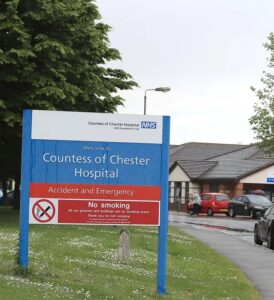

On 16th August, the British Museum issued a statement that it had identified that “items from the collection were found to be missing” (subsequently disclosed to be more than 2,000). A member of staff (although apparently not the thief) had been dismissed and a criminal investigation was underway.
The director of the museum, Hartwig Fischer, said “This is a highly unusual incident. I know I speak for all colleagues when I say that we take the safeguarding of all the items in our care extremely seriously. The Museum apologises for what has happened, but we have now brought an end to this – and we are determined to put things right. We have already tightened our security arrangements and we are working alongside outside experts to complete a definitive account of what is missing, damaged and stolen. This will allow us to throw our efforts into the recovery of objects.” Fischer resigned on 25th August after it emerged that the museum had first been alerted to the theft in 2021 by a dealer in antiquities who had come across some of the items for sale online, but that Fischer claimed that all the items had been accounted for. The impression has emerged of an organisation with shortcomings in governance and lacking assurance about the security of the processes for protecting its collections and a degree of denial at multiple levels – but spectacularly among top executives – about the possibility that anything might be wrong.
On 18th August, the verdict was handed down in the case of Lucy Letby, a neonatal paediatric nurse working at Countess of Chester Hospital, found guilty of the murder of seven babies and the attempted murder of six others, in addition to which the jury were unable to reach a verdict on a six further attempted murder charges. The incidents took place between June 2015 and July 2016 and the failure of the executive team to respond appropriately at this time has been greeted with justifiable outrage. In particular, the paediatricians who first raised concerns about the pattern of baby deaths were first asked to apologise to Lucy Letby for bringing allegations against her, and it was only in July 2016 that she was removed from clinical duties. On 3rd July 2018, Letby was arrested on suspicion of eight counts of murder and six of attempted murder after a twelve month police investigation.
The history of the case has raised major questions about the failure of the Countess of Chester Hospital, its management, and its board to scrutinising spikes in mortality in the neonatal unit, pay attention to concerns raised by clinicians, and take appropriate action. Given the attention that I recall being given to mortality trends in NHS Trusts[1] at the time of the incidents, I find it remarkable that the board appeared to pay so little attention to the data. Much has been made of the failure of the board to respond to the concerns raised by the paediatric consultants. The inquiry due to be commissioned may shed light on this, but I suspect that interprofessional cultural issues may have contributed: between the doctors flagging concerns and executive directors with a nursing background (chief executive, director of nursing and, I understand but can’t confirm, director of operations); or even between the medical director, who I understand to have been a surgeon, and the paediatricians. If so, where was the chairman and where were the non-executives? Not only does it appear with hindsight that they displayed insufficient curiosity to what was going on, but they should have been calling out interprofessional cultural issues if there were any, and assisting in their resolution. Given that the chair of Countess of Chester was a former chief executive of the NHS Management Executive, lack of experience can’t be the explanation.
I became aware of the case at some point in 2019. I believe I saw papers relating to Letby’s referral to the Nursing and Midwifery Council (where I chaired Fitness to Practise interim order hearings) and recall saying to a colleague on the panel that her case had similarities with that of Beverley Allitt[2] . I don’t think that the case was heard by my panel , rather that we were asked to consider it when another panel was struggling to complete its agenda. Hovever, it turned out that we did not hear it, either because we had insufficient time ourselves or that original panel was able to conisder the case after all. Given that Letby did not receive an interim suspension order from the NMC until March 2020 when she charged with the murders, I assume that the papers I saw related to a review of an existing conditions of practice order. This probably restricted her to working only at Countess of Chester Hospital, who should have been fully sighted on the concerns at the time and able to take actions to protect patients while the case was being investigated. This was our normal approach to an interim order when a nurse remained in employment but their case was still under investigation and charges had not yet be brought by the Crown Prosecution Service. Given the shortcomings in the management of this case by Countess of Chester Hospital, I am not sure that this was necessarily the right approach by panels such as mine. But I always took the view, as a serving Trust chair myself, that I and my board would have been adequately sighted and my professional reputation was at stake if I was not assured that my executive colleagues were not managing such a case safely, and consequently the Trust employing a nurse was better placed than the Nursing and Midwifery Council to manage a case safely and proportionately.
Both the British Museum and the Countess of Chester cases raise major concerns about the possibility that senior executives and boards adopt a culture of complacency and denial, that board members lack cultural sensitivity and fail to triangulate what they are told and read in their papers with sufficeint engagement with the front line (which I have described as “kicking the tyres”), and, above all, fail to employ enough curiosity in relation to both data and to “soft intelligence”.
I am grateful to Elizabeth Rantzen, my former deputy and then successor as Chair of West London NHS Trust for her insight into the juxtaposition of these incidents coming to light in the same week.
[1] I was chair at West Middlesex University Hospital 2010 – 2015, and West London NHS trust 2015 – 2023
[2] a nurse convicted of the murder of four infants, attempted murder of three, and gross bodily harm to another six in 1991